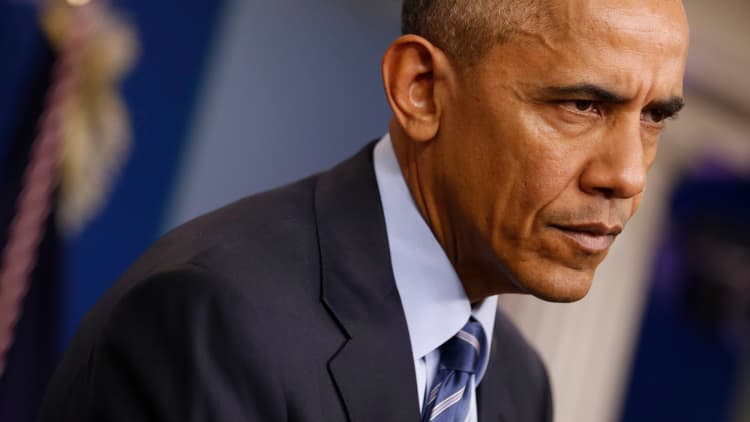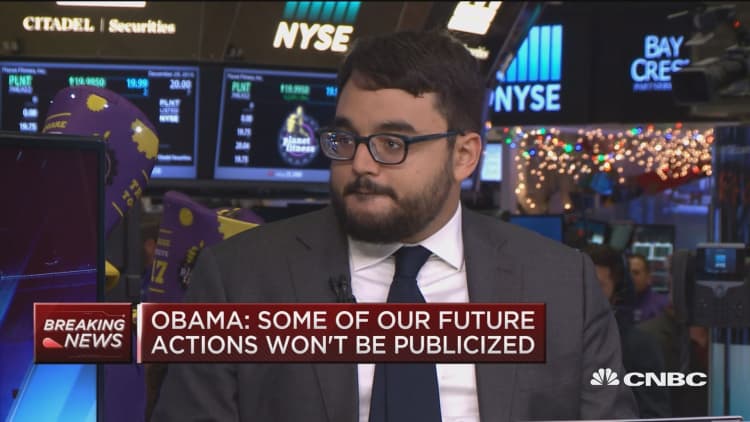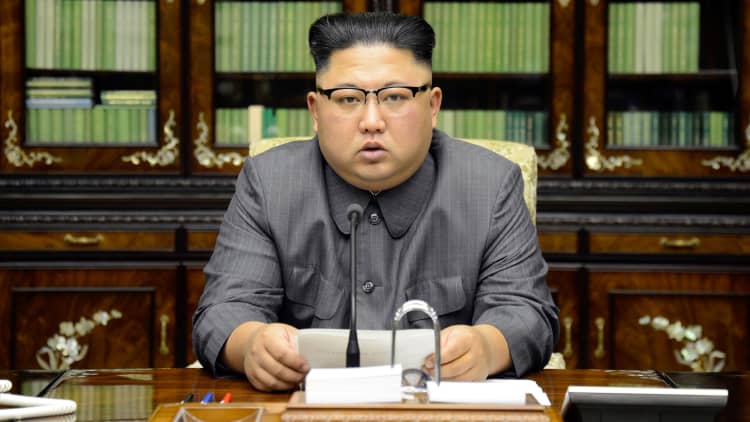
The Obama administration issued an executive order Thursday authorizing sanctions on individuals and organizations it believes were involved in alleged Russian interference in the 2016 U.S. election.
The White House sanctioned nine entities and individuals: two Russian intelligence agencies, four officers of its largest intelligence agency, GRU, and three companies that supported GRU's operations. The White House also expelled 35 Russian diplomats and closed two Russian compounds in New York and Maryland in response to what it said was harassment of American diplomats in Moscow.
The measures will test President-elect Donald Trump, who has brushed off the U.S. intelligence community's conclusion that Russia interfered in the election, calling it an effort to delegitimize his electoral victory. He has been criticized by both major American parties for appearing too warm to Russian President Vladimir Putin.
It remains to be seen whether his administration will reverse the action or other existing sanctions on Russia.
"Today, I have ordered a number of actions in response to the Russian government's aggressive harassment of U.S. officials and cyber operations aimed at the U.S. election," Obama said in a statement. "These actions follow repeated private and public warnings that we have issued to the Russian government, and are a necessary and appropriate response to efforts to harm U.S. interests in violation of established international norms of behavior."
He continued: "All Americans should be alarmed by Russia's actions. In October, my administration publicized our assessment that Russia took actions intended to interfere with the U.S. election process. These data theft and disclosure activities could only have been directed by the highest levels of the Russian government," Obama said.
Obama added that "these actions are not the sum total of our response to Russia's aggressive activities." The measures could extend to cyberactions, though the U.S. wants to avoid an all-out cyberwar, two U.S. officials previously told NBC.
The Russian Foreign Ministry called Obama's sanctions counterproductive and said they will harm the restoration of bilateral ties, according to Reuters. A Kremlin spokesman said Russia regrets that the U.S. approved sanctions, adding that Moscow will consider retaliatory measures, according to The Associated Press.
Trump's transition team did not immediately respond to a request to comment on whether it will uphold the executive action. When he was asked about possible sanctions Wednesday, he said, "I think we ought to get on with our lives."

Also on Thursday, the Department of Homeland Security and FBI released a joint report on the methods the agencies say Russian civilian and military intelligence services used "to compromise and exploit networks and endpoints associated with the U.S. election, as well as a range of U.S. government, political and private sector entities."
They said one group "compromised a U.S. political party," presumably the Democratic National Committee, in spring 2015 with a phishing campaign containing a malicious link.
They said the same political party was compromised again in spring 2016 via targeted phishing.
House Speaker Paul Ryan of Wisconsin, Trump's fellow Republican, called the sanctions "overdue" and "an appropriate way to end eight years of failed policy with Russia."
Incoming Senate Minority Leader Chuck Schumer (D-N.Y.) said he supports the measures and called for the U.S. to "punch back hard" against Russia.
"I hope the incoming Trump administration, which has been far too close to Russia throughout the campaign and transition, won't think for one second about weakening these new sanctions or our existing regime," he said in a statement.
Republican Sens. John McCain and Lindsey Graham, who have previously advocated for heavier sanctions on Russia, said the moves are "long overdue" and a "small price for Russia to pay for its brazen attack on American democracy." They said they will "lead the effort" to bring stronger sanctions in the new Congress.



